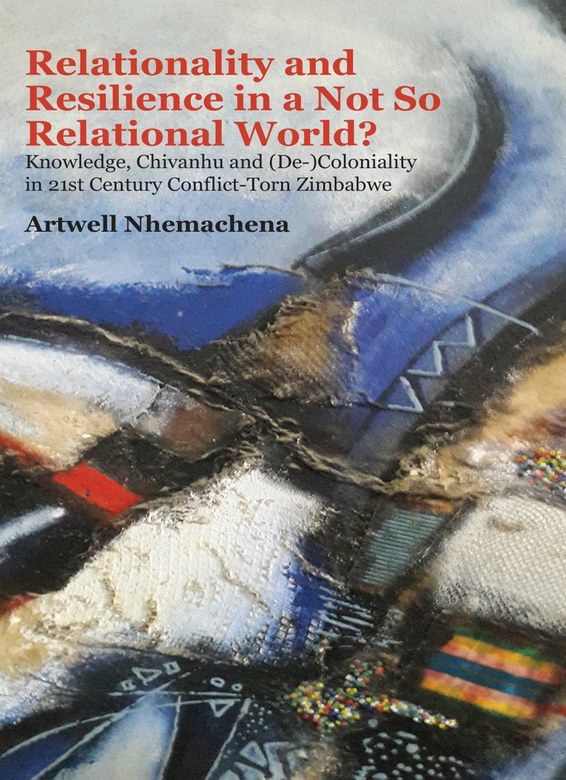written by Artwell Nhemachena
Knowledge, Chivanhu and (De-)Coloniality in 21st Century Conflict-Torn Zimbabwe
This book critically examines the relevance of the increasingly popular theories on relationality by interfacing those theories with the African [Shona] modes of engagement known as chivanhu [often erroneously narrowly translated as tradition]. In other words, the book takes seriously concerns by African scholars that much of the theories that have been applied in Africa do not speak to relevance and faithfulness to the continent. Situated in a recent Zimbabwean context marked by multiple crises producing multiple forms of violence and want, the book examines the relevance of relational ontologies and epistemologies to the everyday life modes of engagements by villagers in a selected district.
The book unflinchingly surfaces the strengths and weaknesses of popular theories while at the same time underlining the exigencies of theorising from Africa using African data as the millstones. By meticulously and painstakingly unpacking pertinent issues, the book provides unparalleled intellectual grit for the contemporary and increasingly popular discourses on (de-)coloniality and resilience in relation to the African peoples and their [often deliberately contested] environments, past, present and future. In other words, the book loudly sounds the bells for the battles to decolonise and transform Africa on Africa’s own terms. This is a book that would be extremely useful to scholars, activists, theorists, policy makers and implementers as well as researchers interested not only in Africa’s future trajectory but also in the simultaneities of temporalities and worlds that were sadly overshadowed by colonial epistemologies and ontologies for the past centuries.
| ISBN | 9789956764297 |
| Pages | 364 |
| Dimensions | 229 x 152mm |
| Published | 2017 |
| Publisher | Langaa RPCIG, Cameroon |
| Format | Paperback |





3 comments
“In examining how people in Eastern Zimbabwe have made sense of, responded and become resilient to the vagaries of Zimbabwe’s complex, multiple crises, through a critical and theoretically informed analysis of Shona cosmologies, Nhemachena has produced a book of wonderful intellectual ambition and thoughtful ethnographic insight. Critically engaging his deep and ethnographically grounded understanding of Shona cosmology and ontologies with theoretical insights from Deleuzian, Ingoldian and a wealth of other current anthropological approaches, Nhemachena offers an approach to understanding life and living in parts of postcolonial and post 2000 Zimbabwe that is unique and will be useful for scholars of African politics and economy as much as for anthropologists concerned with African religions and cosmology.”
Joost Fontein, British Institute in Eastern Africa, and author, Remaking Mutirikwi: Landscape, Water & Belonging in Southern Zimbabwe, (James Currey, 2015)
“Why must, this compelling book asks, ‘the global’ always be the reference point for efforts to understand social and cultural diversity in the contemporary world? Read it for an answer as well as for a way of improving the questions we ask of knowledge, language, the world.”
Harri Englund, Professor of Anthropology & Director, Centre of African Studies, University of Cambridge
“Africanist scholars are increasingly retooling their stock-in-trade – those tired, Euro-American tropes, epistemologies and metaphysics that have long organised social science knowledges, objects of study, problems and explanations surrounding Africa. This book is a major contribution to these efforts. Through rich ethnography of Zimbabwe’s troubled times, Artwell Nhemachena not only challenges us to unthink many familiar social science concepts, conundrums and concerns; he also provides a novel conceptual architecture through which to do so.”
Todd Sanders, Author of Beyond Bodies: Rainmaking and Sense Making in Tanzania